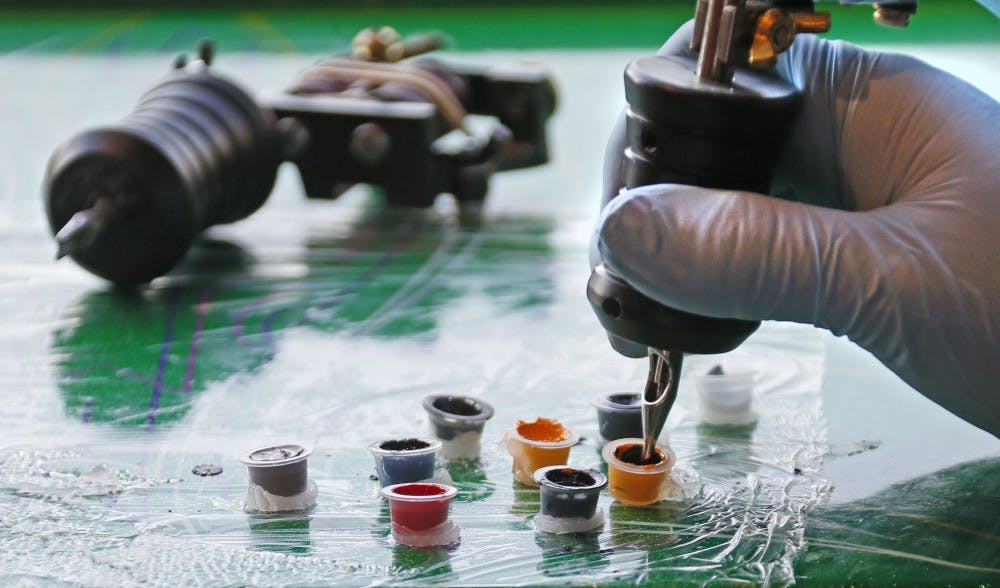Word on the street is that if you’ve done it once, you’ll do it again.
Yes, that statement can be applied to pretty much anything. If you cheat on your diet, you’ll do it again. If you steal and get away with it, you’ll do it again. If you start doing drugs, you’ll do them again.
You can become addicted to pretty much any behavior, but what about getting tattoos? You hear it all the time — people claim they are actually addicted to adding ink to their skin.
Overall, about 14 percent of the U.S. population has at least one tattoo. And to the dismay of generations before ours, 36 percent of U.S. adults between the ages of 18 and 25 are tatted. Of those Americans with tattoos, 32 percent claim they are, in fact, “addicted to ink.”
For many, a tattoo is just a body enhancement of a sort. They see something beautiful, or they create something beautiful, and feel compelled to permanently embed it onto their being. Tattooing is an art form — one that requires true artistic ability and meticulous talent if the tattoo-ee hopes to appreciate the work for their entire lives.
State Press columnist and self-professed tattoo addict Chris Wood said, “If I find an artist I really like, I consider it a privilege to be able to be a showcase of their work.”
For others, there is a certain appeal to the process. Many people are fearful of the pain involved in getting a tattoo; and I cannot lie to you, it certainly isn’t a painless process. But for some people, the sensory involvement is calming in a way.
Social work freshman Krysteeana Hurles has three tattoos and said, “It’s weird, but I really like the sound of the needle.”
She probably isn’t alone, either. Some people truly like the discomfort involved in the repetitive vibrations. When Wood gets a tattoo, he said, “It's just enough pain or discomfort to take my mind off of everything. It's like an extreme meditation, where I can't really focus on anything else happening in my life — just what’s happening in that chair.”
And from personal experience, I can empathize with both Wood and Hurles. My tattoo is simple, small and feminine. It is a quote from Dr. Seuss:"Oh, the places you'll go" it reads. I waited over two years before finally deciding to get my tattoo, and as I lay there in pain, I almost regretted my decision.
When my tattoo artist, Misty Hambrick, stood up and said, “You’re done, lady, check it out,” I finally let the tears fall. I can’t really tell you exactly what made me cry right then, it just happened.
My tattoo is representative of me overcoming some of the darkest pieces of myself and my life, and to put it simply, it means more to me than anyone could ever understand. It is a constant reminder that I am going places and have to keep moving, despite life's obstacles.
When the artist was finally done, I realized how cathartic the whole experience had been for me, and I was completely overcome with emotion. The rush of adrenaline, joy and relief involved in permanently documenting something so personal and important on my body is something I think I will chase forever. I know many people get tattoos because they mean something to them, whether it be a memory or a motto, tattooing it shows the world that you are willing to own that part of you.
Getting a tattoo is symbolic of the control we have over our bodies, and in a world where it feels as if we are always grasping at straws — I understand the addiction.
Related links:
Thinking of inking? Ten tattoo shops near Tempe, Downtown campuses
Think before you ink: How to go about getting your first tattoo
Reach the columnist at Kendra.Penningroth@asu.edu or follow @KPenningroth on Twitter.
Like The State Press on Facebook and follow @statepress on Twitter.
Editor’s note: The opinions presented in this column are the author’s and do not imply any endorsement from The State Press or its editors.
Want to join the conversation? Send an email to opiniondesk.statepress@gmail.com. Keep letters under 300 words and be sure to include your university affiliation. Anonymity will not be granted.




